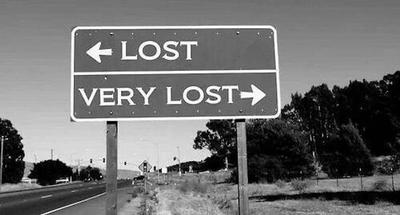To PhD or not to PhD
Why did I decide to do a PhD?
I was working in the industry before I started doing a PhD. That is pretty unconventional, since the vast majority of doctoral students enrol right after graduating from their bachelor or master. There are many good reasons for doing a PhD, but just as much as bad reasons. A lot of students that go for a doctorate after graduating do it because it is ‘what comes after a masters’, because they are the best in their class in that subject area, or because they are afraid to step out of Academia -aka their comfort zone-. Others do it because they suffer the ‘I don’t know what else to do’ crisis and some people just want to have the diploma and be called ** Doctor ** .
Well, I’m not telling you what to do with your life, and some of these students enjoy the ride as -with some serendipity- they find that’s what they want on their way, but it’s common and frequent among these students to feel frustrated and blindly walking a path they never really questioned.

I strongly believe that taking some time, especially outside the academic atmosphere, either working at the industry, in a volunteering experience or even in a gap year, gives you perspective and enables you to know yourself better and grasp the big picture. What do you like? What do you want to do in your life? What do you need to accomplish that? Scientists are supposed to question everything in pursuit of truth, but a lot of students forget to apply that pursuit of truth to what kind of life they want to create.
Actually, these questions should be addressed before the age of 18, when in most countries we are considered adults. However, we are increasingly more childish at that age, and most of us don’t have a clue what to do with our lives or what we want. As sad and weird as it may sound, we might perfectly know the lives and habits of several instagram influencers but we basically don’t know ourselves. This could lead to an interesting philosophical post, but the point that I want to stress here is the importance of making your own decisions in your career. Friedrich Nietzsche said “He who has a why to live for can bear almost any how”, and we can apply this when considering a PhD role! We are stronger when we have a why, a motivation. It’s like riding an electric bike with an engine that pushes us further when we are exhausted pedalling up a steep hill.

Don’t worry if you don’t know what you like, it’s okay. When I graduated, I didn’t either! But I believe you might just want to figure it out before embarking in a four years project. When I finished my masters internship in the dynamic startup world, I was offered a PhD position at the university, but the idea of working on the same project for four years seemed to me very far from what I wanted. Instead, I wanted to explore the world, ‘do’ impactful things, apply all the theoretical concepts to the real world. I had been studying all my life and I just had had enough of it.
I had studied an overall of 5 years on biotechnology and bioinformatics, and decided to strengthen my tech skills, in which I had been increasingly interested in. So, I started working in the technology consulting sector. I worked with databases and learned a lot about ETL processes, while my motivation towards artificial intelligence grew exponentially. Guided by my curiosity, I somehow found myself following online courses on Machine Learning and self-teaching from books and forums. I joined meet-ups and events and really got involved in the tech community in Barcelona, where I was living at that time. When I changed my analyst job for a data scientist role I thought I had finally found what made me happy. It took me a considerable effort so I was very proud of my position. Plus, it was well paid and the atmosphere was inspirational to keep learning.
Though after some time as a data scientist in consulting, I felt I was missing the biomedical side of my university days. I worked in supply chain processes for clients in a wide range of industries: prediction of sales forecast in manufacturing, optical character recognition for aircrafts labels, fraud detection in automotive,… Projects were short, and since things had to be done very quick on a client-need basis, they were usually not as best as possible from the technical point of view.

I felt I wanted to work on a longer project in the biomedical domain, which really motivated and engaged me. I also wanted to have more responsibility in the decision-making and the opportunity to deepen into technical features without the pressure of short deadlines. And here is how the idea of a PhD in the topic of machine learning and biomedicine appeared as a good match for what I was looking for. I had a pretty clear idea of what I wanted and didn’t want to do, and what I was and was not willing to sacrifice for it. For example, I wanted to stick to the topic (combining ML and biomedicine is still quite a broad and hot topic), but I knew a PhD position would likely lower my income to some extent. Yet, I didn’t want to pursue a doctorate degree somewhere conditions would be too bad (as they are in Spain unfortunately) and to prevent this, I was willing to move countries. In the end, I had been paying my bills for three years already, and wanted to keep it that way. I applied to several programs and was lucky enough to get some positive answers.
All in all, from my own experience and what I have seen in research, my point and advice in this post is to take your time to decide what you (don’t) like, how to achieve it, and what you are (or not) willing to sacrifice for that. Don’t be afraid to make a pause in your academic career. If you really want to do a PhD, after this pause you will go back with a strong purpose and motivation. You will have conscientiously decided to do it, and a why that will hold your determination along the journey. You will be ridding an e-bike with a powerful engine.
Making decisions for yourself is very important for everything we do in life, but I would say specially for pursuing doctoral studies. A PhD is not easy, is not short, and some times it will neither be rewarding. So, in order to go through all the ups and downs you definitely need a strong motivation! If you are considering a PhD, I hope this post helps or inspires you through the decision. I encourage you all to do some introspective work on yourselves to discover the amazing human beings you are and what makes you happy! Find your motivation and stick to it when challenging times come (they always do). I’m sure you will achieve your goals as long as you have a strong why for them
](/post/to-phd-or-not-to-phd/images/graduated.gif)